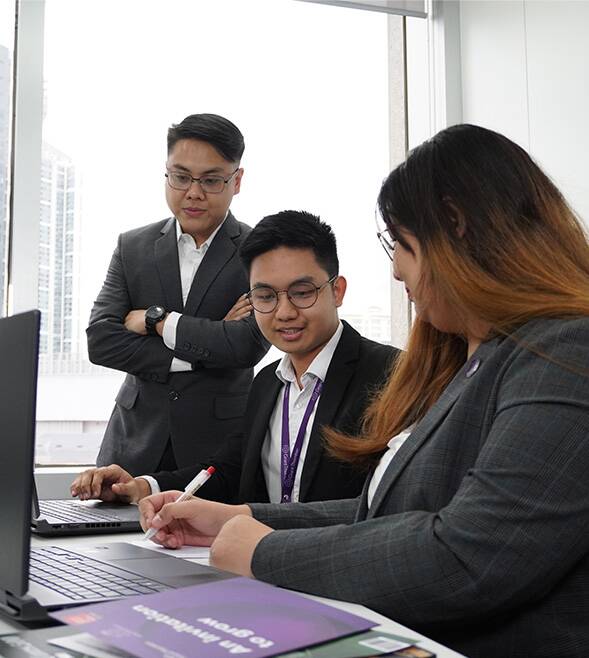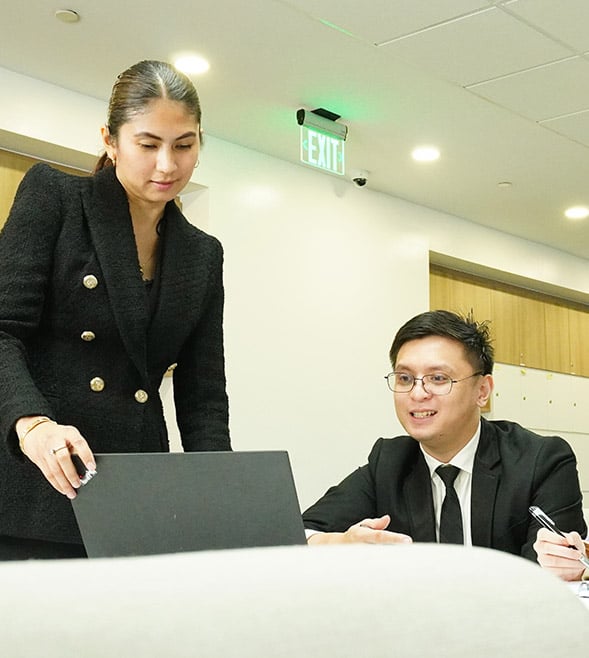Capping off the first month of 2025, the Bureau of Internal Revenue (BIR) issued Revenue Regulations (RR) No. 004-2025 (RR No. 4-25), amending certain De Minimis benefits. It increased the uniform and clothing allowance to Php 7,000, which was formerly Php 6,000 under RR No. 11-2018 (RR No. 11-18); and included cash and gift certificates as a form of employee achievement awards.
But what exactly are De Minimis benefits ?
De Minimis benefits can be best described as non-taxable compensation granted by employers to their employees holding managerial and rank-and-file positions that are mandated by law. Although RR No. 2-98, as amended by RR No. 11-18, defines De Minimis benefits to form part of compensation, it must be made clear that these benefits are not subject to income tax, as well as withholding tax on compensation income.
Thus, the following shall be considered De Minimis benefits and form part of the non-taxable compensation of employees as of RR Nos. 4-25, amending certain provisions of RR No. 11-18, and RR No. 2-98:
a. Monetized unused vacation leave credits of private employees up to ten (10) days;
b. Monetized value of vacation and sick leave credits paid to government officials and employees;
c. Medical cash allowance to dependents of employees up to Php 1,500 per semester of Php 250 per month;
d. Rice subsidy up to Php 2,000 or one sack of 50kg rice per month amounting to not more than P2,000;
e. Uniform and clothing allowance not exceeding Php 7,000 per annum.
f. Actual medical assistance, e.g., medical allowance to cover medical and healthcare needs, annual medical/executive check-up, maternity assistance, and routine consultations, not exceeding P10,000 per annum;
g. Laundry allowance up to Php 300 per month;
h. Employee achievement awards, e.g., for length of service or safety achievement, in any form, whether in cash, gift certificate or any tangible personal property, with an annual monetary value not exceeding Php 10,000 received by the employee under an established written plan which does not discriminate in favor of highly paid employees;
i. Gifts given during Christmas and major anniversary celebrations not exceeding Php 5,000 per employee per annum;
j. Daily meal allowance for overtime work and night/graveyard shift not exceeding 25% of the basic minimum wage on a per region basis;
k. Benefits under a Collective Bargaining Agreement and productivity incentive schemes provided that the total annual monetary value received from both CBA and productivity incentives schemes combined up to Php 10,000 per employee per annum;
To highlight, the uniform and clothing allowance was increased from Php 6,000 per annum to Php 7,000 per annum, or by Php 1,000. This uniform and clothing benefit should be distinguished from the requirement of a business that exposes employees to hazardous processes or environments. The classification of protective gear should be a necessary business expense rather than a benefit. For example, Rule 1080 of the Occupational Safety and Health Standards in the Philippines mandates that employers provide personal protective equipment (PPE) at their own expense to ensure workplace safety.
On the other hand, in the case of employee achievement awards, the previous provision on de minimis recognized only tangible personal property, other than cash or gift certificates, as the acceptable form of benefits. Specifically, the provision reads “Employee achievement awards, e.g. for length of service or safety achievement, which must be in the form of a tangible personal property other than cash or gift certificate, with an annual monetary value not exceeding P10,000 received by the employee under an established written plan which does not discriminate in favor of highly paid employees.” Whereas in the amendment, it now recognizes that any form either in cash and gift certificates, in addition to the previously allowed tangible personal property may be considered to form part of the benefit for employee achievement awards.
In previous BIR issuances, employee achievement awards contemplated an occasion where such benefits are given in tangible personal property. However, this entails administrative work, both for the employee and employer, to ensure that invoices / receipts as proof of purchase were submitted by the employee. An obvious practice of business, though, employers have utilized other ways of providing perks to their employees, such as by giving gift certificates, and has even evolved to electronic gift certificates (eGCs) during the pandemic. It is worth noting that employees prefer to receive eGCs / GCs rather than cash, and even employers prefer the same form for purposes of easy documentation of disbursing the awards. Thankfully, BIR has also adopted and considered cash and gift certificates as valid de minimis benefits under achievement awards.
Some reminders regarding non-taxable de minimis benefits are as follows:
a. In general, any incentives given to employees shall form part of the compensation subject to income tax, unless specifically exempted under a special law or the list of non-taxable de minimis. Accordingly, other de minimis benefits, such as flowers, fruits, books or similar items (given to employees under special circumstances, e.g. on account of illness, marriage, birth of a baby, etc.), death aid, and paternity benefit, are generally taxable since these are not included in the list of non-taxable de minimis benefits.
b. Benefits given in excess of the maximum amount allowed as De Minimis benefits shall be included as part of "other benefits" which are subject to Php 90,000.00 ceiling.
Revenue Memorandum Circular (RMC) No. 50-2018 states that any amount in excess of Php 90,000 shall be subject to income tax, and consequently, to the withholding tax on compensation. The RMC further provided an example wherein Ms. A received an annual clothing allowance amounting to Php 10,000 and a 13th month pay of P80,000. No other benefits were received for the entire year. In this case, since the prescribed maximum amount for clothing allowance is only Php 6,000 (prior to RR 4-2025), the excess of Php 4,000 shall be added to the 13th month pay, thereby the entire benefits received amounted to Php 84,000. In this scenario, the same shall still be exempt from income tax since the ceiling amount for these other benefits is Php 90,000.00.
As early as BIR Ruling DA-230-02, the BIR has recognized clothing allowance to be exempt from the computation of withholding tax as long as it does not reach the ceiling prescribed. And in BIR Ruling DA-218-08, the BIR has further opined that the monthly clothing allowance and cost of uniform form part of an employee’s De Minimis benefits. Anything in excess of the threshold of clothing allowance shall no longer be De Minimis and will be subject to the appropriate income tax.
c. The rules and regulations on de minimis benefits do not allow aggregation of the amounts set for each type of benefit.
In one BIR Ruling, the BIR explained that each item of de minimis benefits shall be treated independently of each other. Accordingly, in the said Ruling, there can be no aggregation of de minimis values for rice and meal and food benefits through meal and food vouchers. In order to clearly conform with prescribed de minimis standards, therefore, separate vouchers should be used for the rice allowance and the meal and food benefit.
The above enumeration can be described as some of the best tools employers can utilize to extend an extra hand to their employees. Not to mention, it’s also a great tool in boosting the morale of employees without worrying about additional tax liabilities. With the recent amendments to the De Minimis benefits, one can’t help but recognize the BIR’s effort in ensuring employees receive what they really deserve during these fast-changing times. Certainly, we can all agree that there is great anticipation as to the upcoming amendments and how it will benefit employees.
As published in BusinessWorld, dated 04 February 2025




